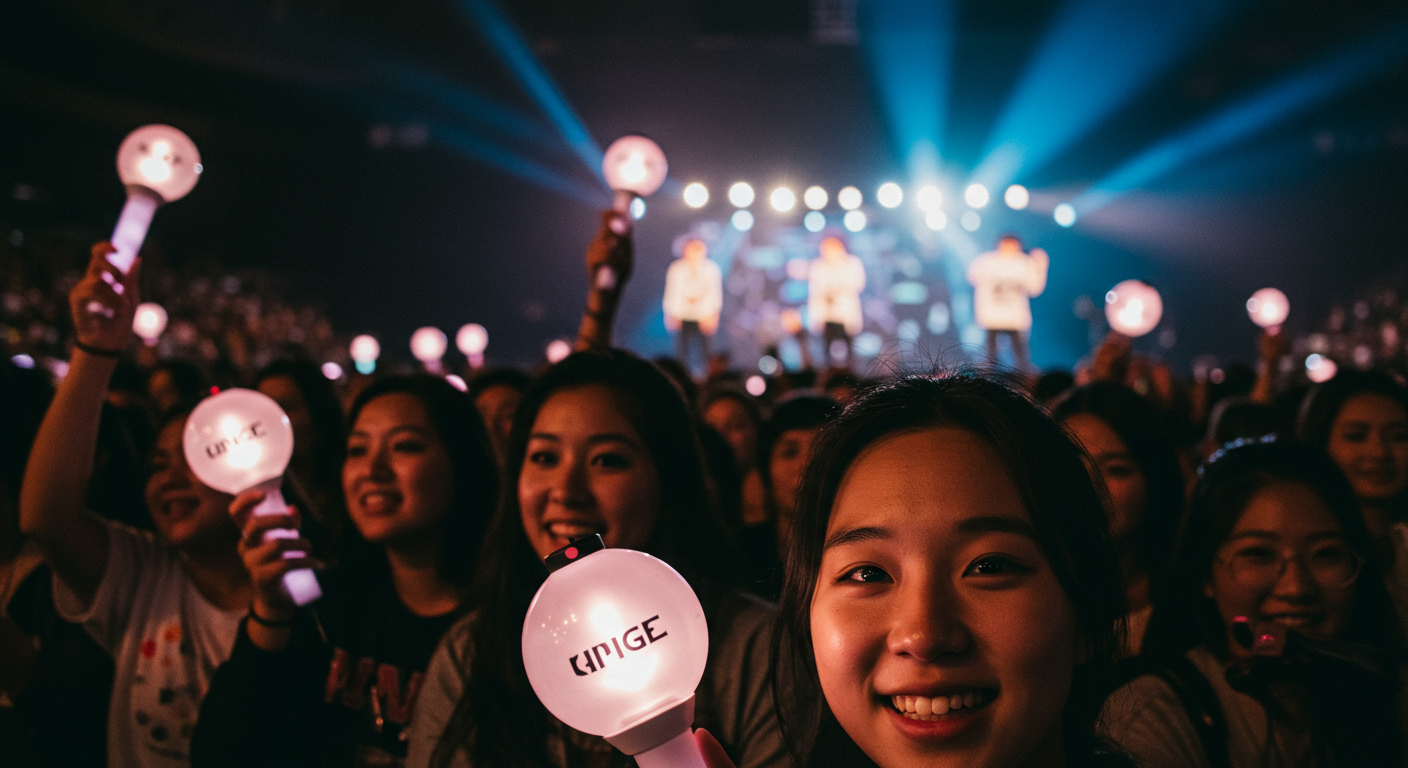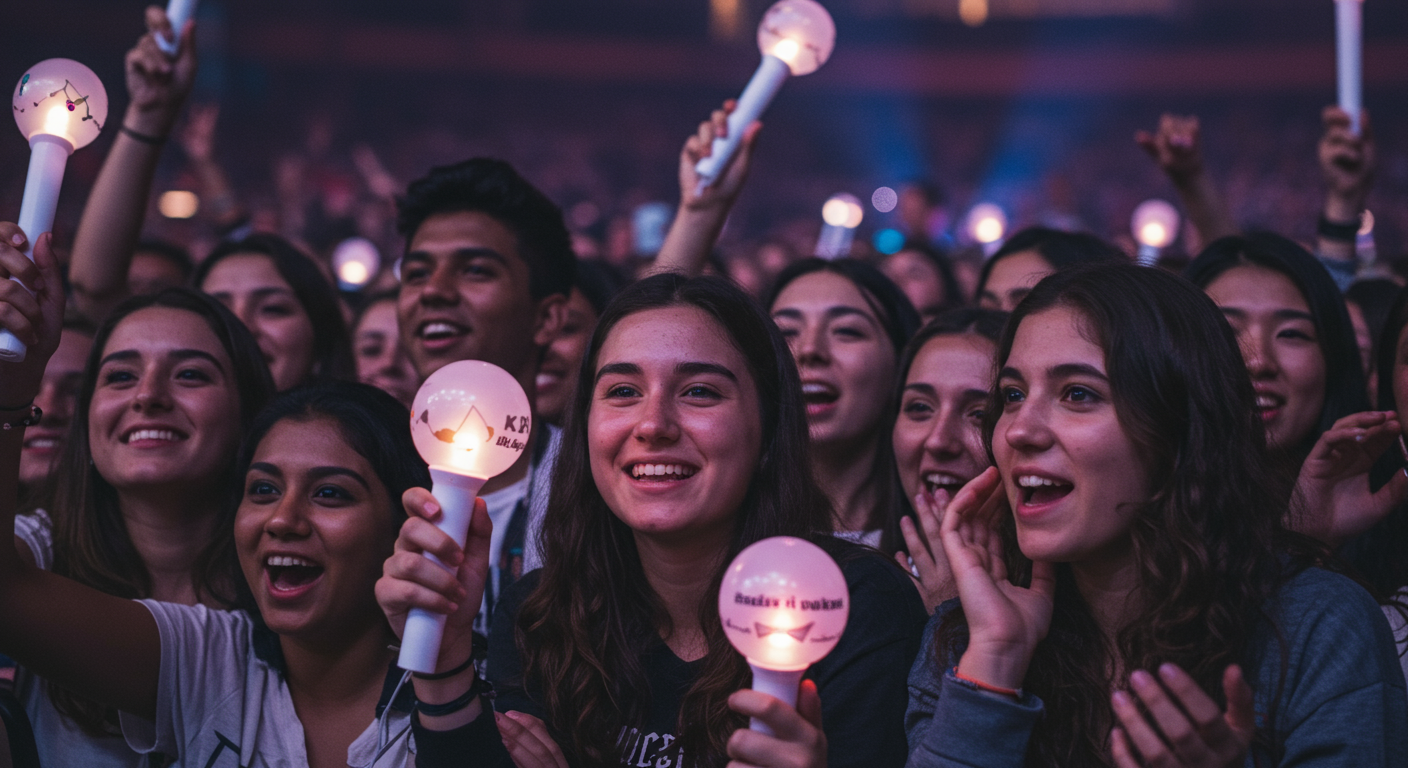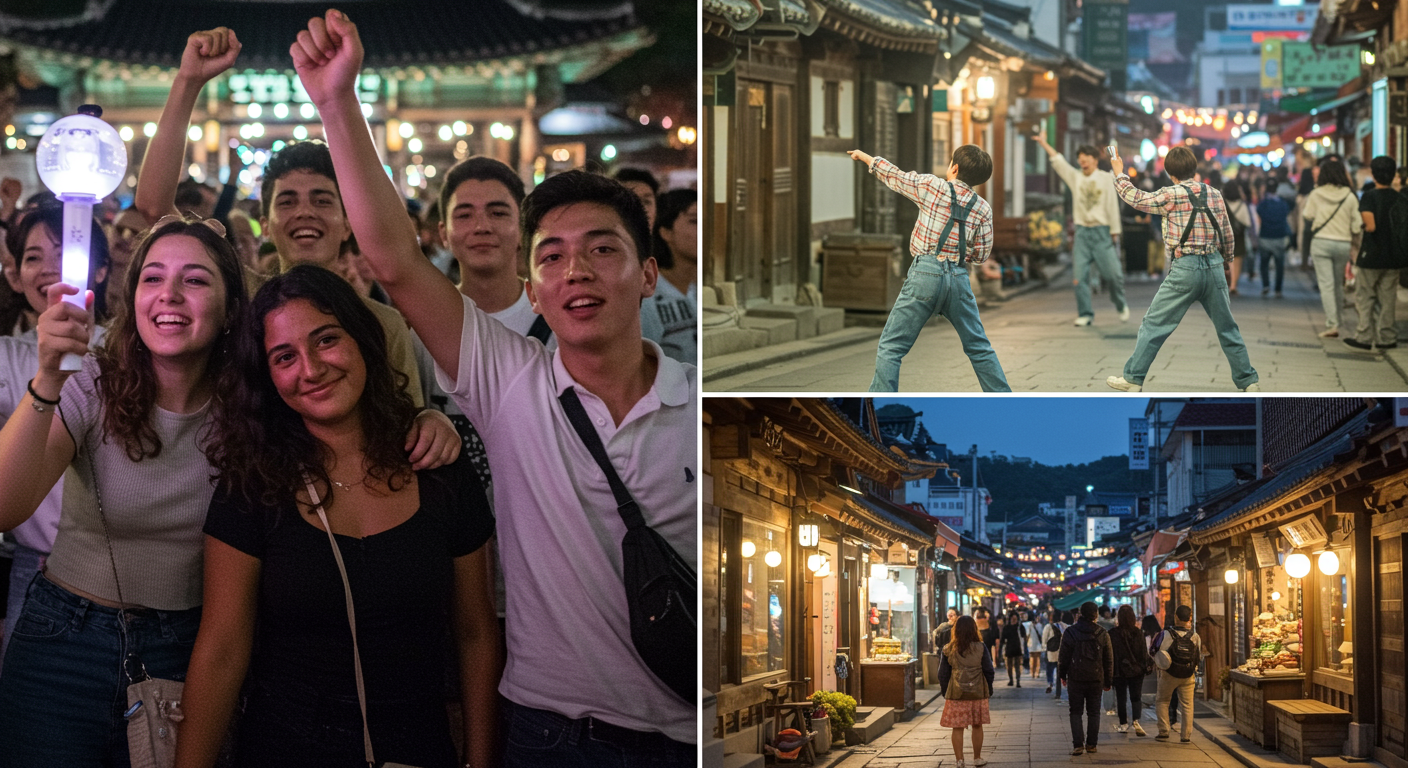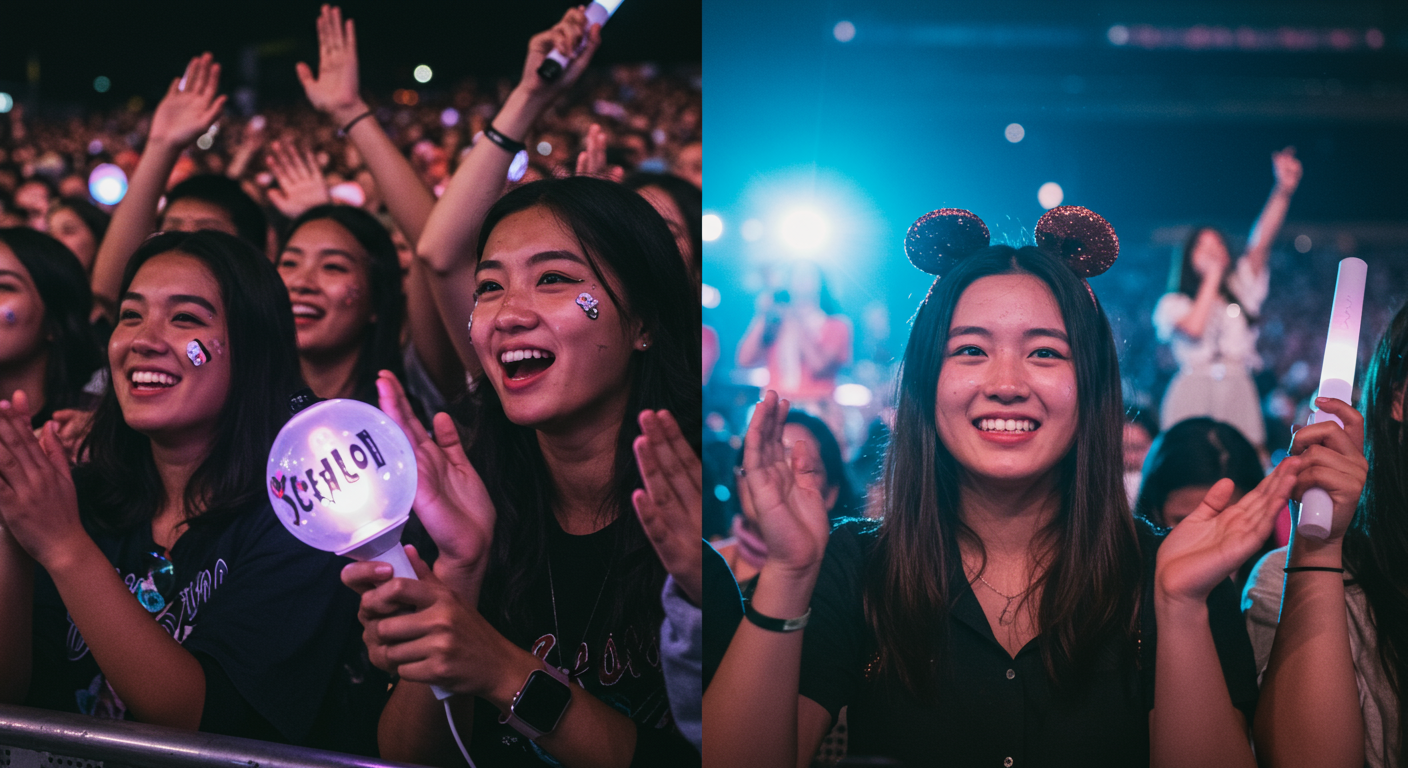Beyond the Stage: Unpacking K-Pop's Global Identity Shift and Parasocial Love
Beyond the Stage: Unpacking K-Pop's Global Identity Shift and Parasocial Love
Have you ever wondered what truly lies beneath the dazzling surface of K-Pop, beyond the catchy tunes and synchronized dances? What if I told you it's not just music, but a profound cultural phenomenon reshaping identities worldwide, particularly in unexpected places like Italy?
I've been observing cultural shifts for decades, and few have captivated me quite like the rise of K-Pop. It's fascinating, isn't it? Recently, I had the pleasure of sitting down with Italian journalist Marianna Baroli – someone with a truly unique perspective, blending deep fandom with sharp journalistic insight. We talked K-Pop, fan culture, the often-misunderstood world of parasocial love, and what all this means for our global identity. Trust me, it was a conversation that left me thinking, 'At what cost? And where do we go next?'
Table of Contents
The K-Pop Phenomenon: A Global Identity Shift
For years, people asked me, "Why K-Pop? Why now?" And honestly, it's not just one thing. K-Pop didn't just 'beat' the West; it offered something different, something meticulously crafted. While Western music often grew organically, K-Pop was built with global domination in mind. Think about it: the unparalleled production value, the synchronized choreography, the incredibly talented artists trained for years – it was a total package that was impossible to ignore. And the way they engage with fans? Revolutionary. It redefined what a music industry could be.
Today, K-Pop isn't just a genre; it's a global powerhouse. We're seeing more diverse concepts, greater artistic freedom (though still within a framework), and a constant push to innovate. What I find particularly fascinating is the rise of girl groups. They are absolutely slaying the charts, breaking traditional molds, and presenting fierce, empowering concepts that resonate deeply with fans worldwide. It's not just about pretty faces anymore; it's about charisma, talent, and a powerful message.
But let's not forget the unsung heroes: the producers and the major agencies. Companies like SM Entertainment, JYP Entertainment, YG Entertainment, and HYBE Corporation are truly the masterminds behind this phenomenon. They don't just find talent; they cultivate it, sculpting artists from trainee days into polished global idols. It’s a systematic approach, often criticized for its intensity, but undeniably effective in creating a consistently high-quality product that captures hearts globally.
 Description: "A diverse group of young adults, from various ethnic backgrounds, enthusiastically cheering at a K-pop concert. The atmosphere is vibrant with glowing lightsticks and stage lights, capturing a moment of pure joy and shared passion. Realistic photo style."
Description: "A diverse group of young adults, from various ethnic backgrounds, enthusiastically cheering at a K-pop concert. The atmosphere is vibrant with glowing lightsticks and stage lights, capturing a moment of pure joy and shared passion. Realistic photo style."
Fan Culture and Parasocial Love: The Deep Dive
Now, this is where it gets really interesting, and honestly, a little complicated. My own journey into K-Pop began with bands like 2PM and later GOT7. I remember being drawn into their performances, the personalities, and the sheer dedication. There’s something incredibly joyful about fangirling – it’s a shared passion, a collective experience that creates powerful bonds with other fans. You find your tribe, you cheer together, you cry together. It’s a beautiful thing, that sense of community, right?
But here’s the rub. As much as I adore the passion, I've also seen the darker side of K-Pop’s online culture. The toxicity can be intense. Fan wars erupt over trivial matters, artists are put under immense pressure to be perfect, and any perceived misstep can lead to a swift and brutal cancel culture. It’s a real pain point for many in the fandom, and for the artists themselves.
"When you invest so much of yourself emotionally, separating the artist from the person, or even from your own expectations, becomes incredibly difficult. It's a fine line to walk."
This brings us to parasocial relationships. In K-Pop, the agencies often foster an illusion of intimacy through constant content – behind-the-scenes videos, live streams, social media interactions. This creates a powerful, one-sided emotional bond where fans feel like they truly know and are connected to their idols, even though the idols don't know them personally. For some, it’s a harmless escape and a source of joy. For others, it can blur the lines between fantasy and reality, leading to unrealistic expectations and emotional distress when those expectations aren't met. It’s fascinating how our brains adapt to these digital connections, isn't it?
This emotional investment also makes objectivity in music reviews almost impossible, both for fans and sometimes even for professional critics. How do you objectively review an album when you've followed the idol's journey for years, seen their struggles, and feel such a strong personal connection? It’s a genuine challenge that speaks to the depth of the parasocial bond.
 Description: "A close-up, stylized illustration of a fan holding a lightstick, with blurred K-pop idols performing on stage in the background. The fan's eyes reflect a mix of excitement and longing, capturing the emotional intensity of parasocial relationships. Soft, dreamy aesthetic."
Description: "A close-up, stylized illustration of a fan holding a lightstick, with blurred K-pop idols performing on stage in the background. The fan's eyes reflect a mix of excitement and longing, capturing the emotional intensity of parasocial relationships. Soft, dreamy aesthetic."
Italy's Embrace of Hallyu: More Than Just Music
One of the most fascinating aspects of Hallyu’s spread is its reception in diverse cultures. Marianna Baroli provided such insightful perspectives on Italian reactions to K-Pop. Initially, there was skepticism, as you'd expect with any new cultural wave. But then, it just took hold. It wasn't just the music; it was the entire aesthetic, the dedication of the performers, and the unique blend of artistry. It really surprised me to hear how deeply embedded it has become.
Hallyu, the Korean Wave, extends far beyond music. We talked about things like Airbnb and SEVENTEEN, for instance. Fans travel to Korea, seek out places related to their idols, and engage in experiences that deepen their connection. It's a perfect example of how fandom intertwines with lifestyle and tourism. It truly becomes a holistic cultural experience.
So, just how big is Hallyu in Italy? It's not just K-Pop concerts; it's K-Dramas dominating streaming services, K-Food gaining immense popularity, and even Korean fashion making waves. And, of course, K-Beauty. It's no longer just a niche interest; it's a global phenomenon, celebrated for its innovation, focus on healthy skin, and elaborate routines. It's all part of this larger cultural package that Korea has so masterfully put together.
Having lived in Korea for nearly two decades, I've seen this evolution firsthand. It's one thing to observe from afar, but another to be immersed in the daily life, witnessing how Korean culture adapts and exports itself. There are so many interesting parallels and contrasts between Italian and Korean culture, too. Both value family, food, and a certain passion for life. Yet, their expressions are so different, and it's this unique blend that makes the cultural exchange so rich.
 Description: "A vibrant, street-level photograph capturing a busy market street in Seoul, South Korea, with traditional Korean architecture blending with modern elements. In the foreground, an Italian tourist is seen happily taking a selfie, holding a K-Beauty product, symbolizing the global reach of Hallyu. Bright, energetic feel."
Description: "A vibrant, street-level photograph capturing a busy market street in Seoul, South Korea, with traditional Korean architecture blending with modern elements. In the foreground, an Italian tourist is seen happily taking a selfie, holding a K-Beauty product, symbolizing the global reach of Hallyu. Bright, energetic feel."
The Artists Shaping Tomorrow: Jay Park and DPR IAN
While the idol system is the bedrock of K-Pop, there are artists who are pushing the boundaries and creating new pathways. Take Jay Park, for example. His journey from an idol to a formidable entrepreneur, building independent labels like AOMG and H1GHR MUSIC, is a testament to his vision. He's diversified Korean music into hip-hop and R&B in ways that simply didn't exist before, breaking away from the rigid idol system and offering a different kind of artistic freedom. It's incredibly inspiring to watch.
Then there's DPR IAN. His artistic vision, particularly in visual direction, is just mind-blowing. He's not just a musician; he's a storyteller, a visual artist, crafting entire worlds around his music. He brings an entirely different dimension to the Korean music scene, one that prioritizes creative control and a unique, often avant-garde, aesthetic over typical idol norms. These artists show us that Korean music is constantly evolving, innovating, and adapting.
Looking Ahead: The Future of Global Culture and Connection
So, where is the modern world going, with all these cultural crossovers and increasingly digital connections? Hallyu and the rise of parasocial relationships offer a fascinating glimpse. We're seeing a global blending of cultures like never before, largely driven by digital platforms that break down geographical barriers. Celebrity is no longer just about talent; it's about accessibility, consistent content, and the illusion of a personal bond.
The positive side? More diverse cultural consumption, greater empathy across borders, and new forms of community. The potential downside? The blurring of reality, intense pressure on public figures, and a generation possibly growing up with a skewed sense of connection. It's a complex landscape, one that requires us to be mindful consumers and engaged participants. The conversation with Marianna really hammered home just how profound these shifts are.
 Description: "A futuristic, abstract illustration depicting interconnected global networks with shimmering light trails, symbolizing cultural exchange and digital communication. Silhouetted figures stand on a digital platform, gazing at a merged world map made of musical notes and diverse cultural symbols. Cool, visionary color palette."
Description: "A futuristic, abstract illustration depicting interconnected global networks with shimmering light trails, symbolizing cultural exchange and digital communication. Silhouetted figures stand on a digital platform, gazing at a merged world map made of musical notes and diverse cultural symbols. Cool, visionary color palette."
Dive Deeper: Recommendations and Resources
This was just a glimpse into a much larger conversation, and I hope it sparked some thoughts for you! If you're as fascinated by these topics as I am, I highly recommend checking out Marianna Baroli’s work. Her insights are truly invaluable, especially if you're keen to understand the global K-Pop phenomenon from a unique perspective.
You can find Marianna online:
- Instagram:
- Panorama:
And for more deep dives into Korean culture and society, you can always connect with David A. Tizzard:
- Email:
- David's Instagram:
- Korea Deconstructed Instagram:
- Listen on iTunes:
- Listen on Spotify:
- Listen on Podcasts:
Thanks to Patreon members Hee Ji Jacobs, Bhavya, Roxanne Murrell for their support. If you want to dive deeper into exclusive content and support independent commentary, consider . And a big shout out to Jocelyn Clark for the amazing music!
So, as we navigate this ever-evolving global landscape, remember that culture is fluid, identity is multifaceted, and connections, whether real or parasocial, are shaping our world in profound ways. Let's keep exploring these fascinating intersections together.
K-Pop's global success stems from its strategic approach, high production values, and immersive fan engagement. Unlike the often organic growth of Western music, K-Pop offers a meticulously crafted "total package" – from extensive idol training and captivating choreography to compelling visual concepts and proactive international marketing. This systematic approach ensures consistently high-quality content that deeply resonates with global audiences, fostering intense fan loyalty and a unique sense of community.
While K-Pop fan culture offers immense joy and community, it also presents challenges like online toxicity, intense fan wars, and excessive pressure on idols. Parasocial relationships, where fans develop one-sided emotional bonds with idols, can blur the lines between reality and fantasy. This can lead to unrealistic expectations, emotional distress when those expectations aren't met, and difficulty in maintaining objectivity, even in simple music reviews. It's a balance between healthy admiration and potentially overwhelming emotional investment.
Hallyu's influence in countries like Italy is incredibly pervasive, extending far beyond just K-Pop music. It includes the widespread popularity of K-Dramas on streaming platforms, the growing embrace of K-Food in local culinary scenes, and the significant impact of K-Beauty products on the cosmetics industry. This holistic cultural package, combining music, entertainment, lifestyle, and consumer goods, creates a deeper, more comprehensive engagement with Korean culture, turning fans into cultural explorers and consumers of related products and experiences.
Artists like Jay Park and DPR IAN represent a significant evolution and diversification within the Korean music landscape. Jay Park, with his transition from idol to successful entrepreneur and the establishment of independent labels like AOMG and H1GHR MUSIC, showcases a shift towards greater artistic autonomy and genre expansion beyond traditional K-Pop. DPR IAN, known for his unique visual direction and strong creative control, emphasizes artistic expression and individuality. Together, they signify a future where Korean music is not solely defined by the idol system but embraces diverse genres, independent artistry, and innovative creative visions, pushing artistic boundaries and expanding its global appeal even further.
Comments
Post a Comment